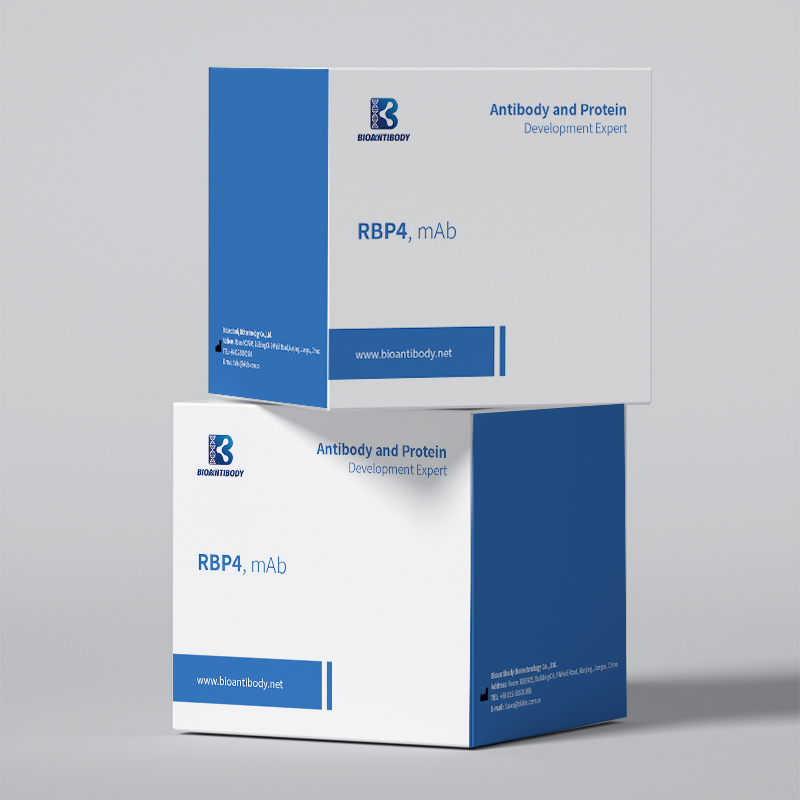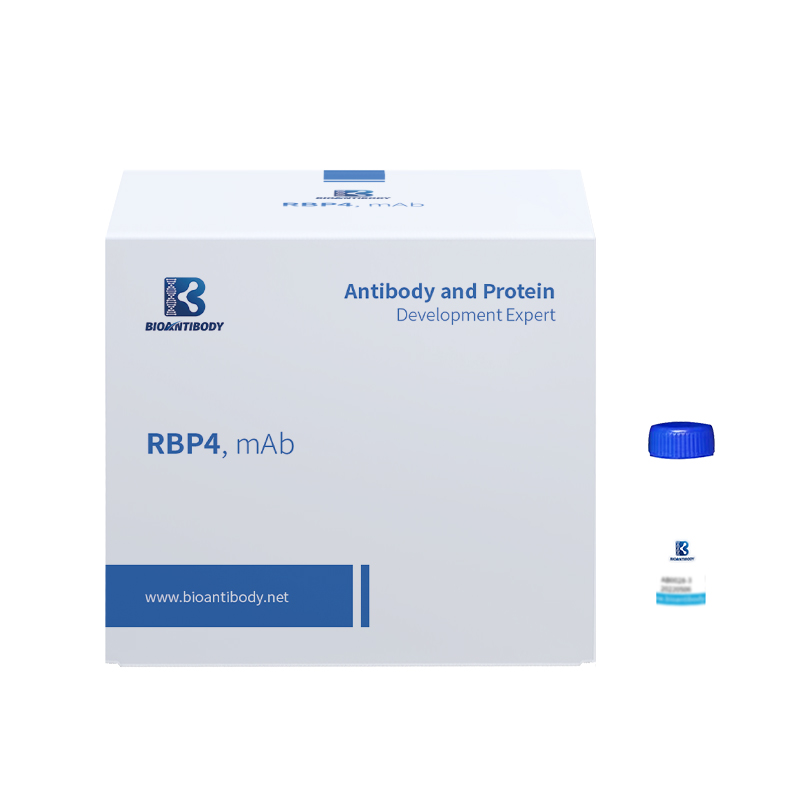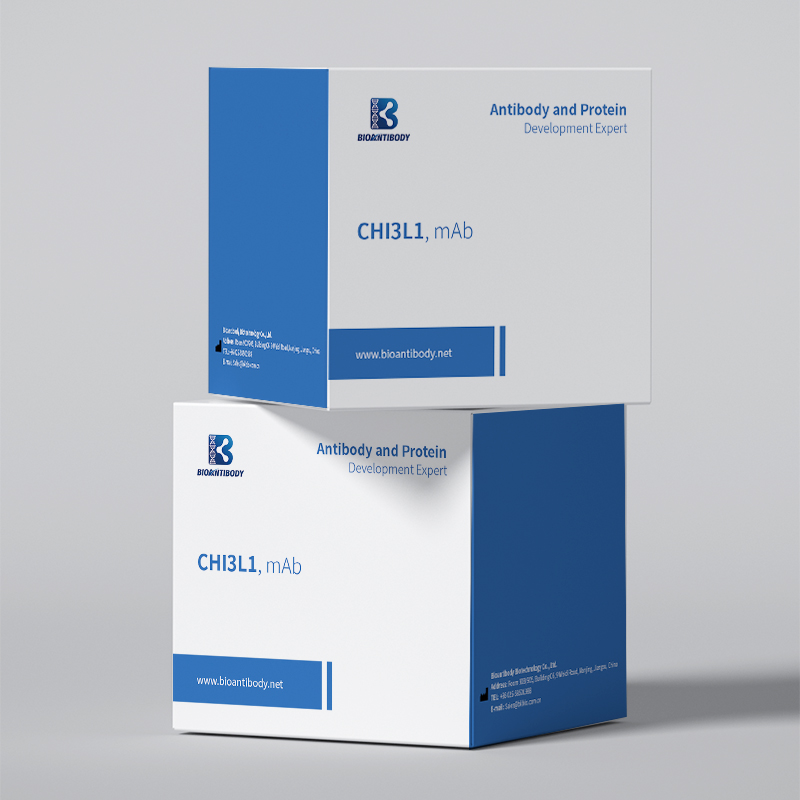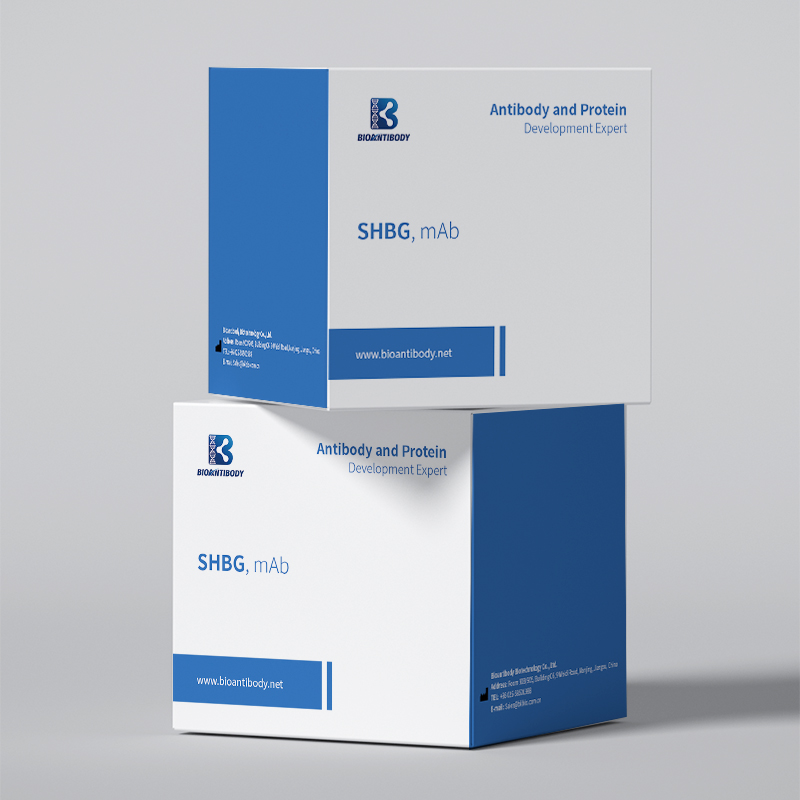Anti-human RBP4 Antibody, Mouse Monoclonal
Product details
General Information
Retinol-binding protein 4 (RBP4) is the specific carrier for retinol (also known as vitamin A), and is responsible for the conversion of unstable and insoluble retinol in aqueous solution into stable and soluble complex in plasma through their tight interaction. As a member of the lipocalin superfamily, RBP4 containing a β-barrel structure with a well-defined cavity is secreted from the liver, and in turn delivers retinol from the liver stores to the peripheral tissues. In plasma, the RBP4-retinol complex interacts with transthyretin (TTR), and this binding is crucial for preventing RBP4 excretion through the kidney glomeruli. RBP4 expressed from an ectopic source efficiently delivers retinol to the eyes, and its deficiency affects night vision largely. Recently, RBP4 as an adipokine, is found to be expressed in adipose tissue and correlated with obesity, insulin resistance (IR) and type 2 diabetes (T2DM).
Properties
| Pair Recommendation |
CLIA (Capture-Detection): 9D11-8 ~ 3D4-1 3C8-1 ~ 3D4-1 |
| Purity | >95% as determined by SDS-PAGE. |
| Buffer Formulation | PBS, pH7.4. |
| Storage | Store it under sterile conditions at -20℃ to -80℃ upon receiving. Recommend to aliquot the protein into smaller quantities for optimal storage. |
Competitive Comparison


Order Information
| Product Name | Cat. No | Clone ID |
| RBP4 | AB0032-1 | 9D11-8 |
| AB0032-2 | 3C8-1 | |
| AB0032-3 | 3D4-1 | |
| AB0032-4 | 1C6-1 |
Note: Bioantibody can customized quantities per your need.
Citations
1.Aiwei Y B , Vijayalakshmi V , Bodles A M , et al. Retinol binding protein 4 expression in humans: relationship to insulin resistance, inflammation, and response to pioglitazone.[J]. J Clin Endocrinol Metab(7):2590-2597.
2.Haider D G , Karin S , Gerhard P , et al. Serum retinol-binding protein 4 is reduced after weight loss in morbidly obese subjects.[J]. Journal of Clinical Endocrinology & Metabolism(3):1168-71.









